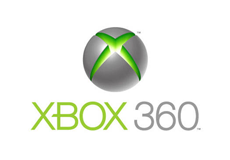By
Paula ParisiJanuary 8, 2013
Wireless has revolutionized the world, and now it’s going to take a shot at saving it. Verizon is launching a $10 million competition to find enlightened solutions to formidable global challenges. Called the Powerful Answers Award, it will be a yearlong challenge to top thinkers in technology to develop cloud-based, wireless or even wireline solutions for issues in education, healthcare and sustainability. Continue reading CES 2013: Verizon Looks for Powerful Answers to Global Issues
By
Karla RobinsonNovember 30, 2012
The Xbox 360 has it. Apple’s iPad and Samsung’s connected TVs have it. And now LG Smart TVs are also getting the Verizon FiOS TV app, bringing access to 75 channels and Flex View video on-demand.
“The expansive selection of channels from FiOS TV and on-demand content from Verizon’s Flex View library further strengthens LG’s Smart TV platform, giving consumers of all ages a virtually limitless amount of entertainment on TVs, Blu-ray players, PCs, even tablets and phones,” says Samuel Chang, VP of Smart TV and Innovation for LG Electronics.
According to the press release, FiOS TV’s Flex View “offers more than 25,000 on-demand movies and show titles for purchase or rent on any Internet-connected device, whether home on a TV or PC, or on-the-go on a mobile device.”
“As promised back at CES — when they said it would launch in the ‘first half of 2012’ — the app is of course customized for LG’s Magic Remote gesture control feature, and is available on all 2012 Smart TVs, plus the BP620 Blu-ray player via the Smart TV smart World app store,” reports Engadget.
“The good news is you can make use of it in a room with no cable box needed, however the lineup is still missing a few key channels (ESPN) that may be tough to do without,” notes the post.
Verizon also recently announced a partnership with NBCUniversal to expand its TV Everywhere offerings. “If [Verizon] can add a few more, the set-top box-less future may be within reach,” Engadget suggests.




